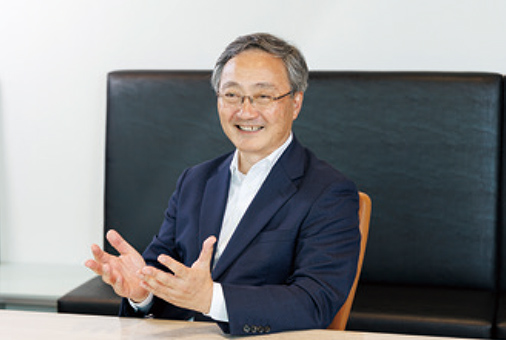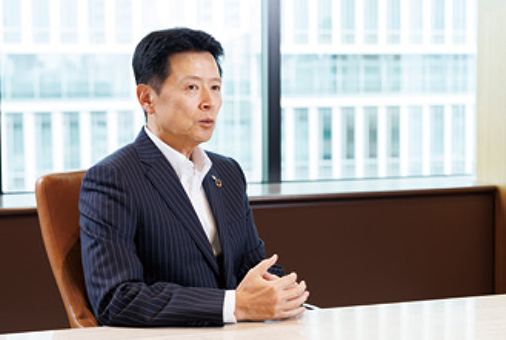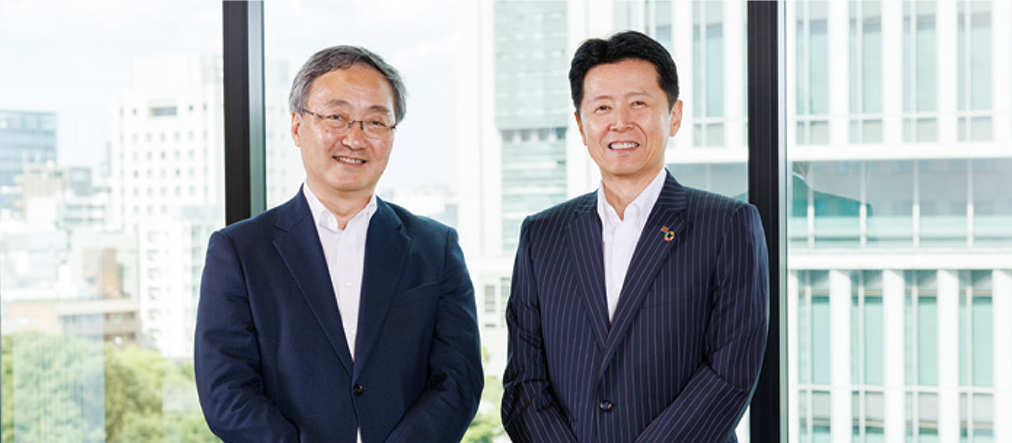"Theory language and abbreviation" written by Eiichi Shibusawa, who is said to be the father of the modern Japanese economy, incorporates values that apply to the sustainability management of modern companies.Here, we invited Mr. Ken Shibusawa, Chairman and Chief Executive Officer of Commons Investment Trust Co., Ltd. Director, who is the fifth grandchild of Eiichi, to talk with our president, Nakamura, on the theme of "Ricoh Leasing's medium-to long-term value creation and sustainability management."
(implemented in September 2023).

- "Rongon and Sanba" is the management of a modern company itself.
At the time of its publication, Japan had been affluent to some extent through turbulent times, and against this background, the "nothing-to-do" principle was widespread, and Eiichi was upset that there were no new challenges.In the chapter "Preparedness for Taisho Restoration," it is written that a new challenge will not be taken if a person falls into the doctrine, and that will lead to modern times.Also, as it was written, "If this situation continues, something alarming may happen in the future," the Manchurian Incident took place in 1931, the year of Eiichi's death.The question "for what" is very important.Why is a percussion, what we are doing is a What, what we do is a mission, where we go is a Where, and what we do is a How we can organize it with value.We can expect companies whose presidents and employees share a common sense of values.There are only humans, and AI can't, ask the philosophical question of why they exist.It is important for each and every employee at the company to continue to create value with an autonomy.

- "Sympathy" in the management philosophy leads to new creation
- What roles should be played as Circulation-Creating Company?
That's right.Leases & Finance Business creates value that supports the company's growth opportunity by lowering the hurdle for customers' capital expenditures.Awareness of what growth customers can achieve through capital investment creates a sense of rewarding and pride.What is important is to seize customer growth opportunities through dialogue and reach the next step and the next step after that.We began with Leases & Finance Business and are now in the process of developing services-such as collection-of-money-and investment businesses, such as solar power generation business.We have a "Abundant Future Reserves" system that donates 1% of the profits generated through such sustainability management, deducting the yearly allowance from Net Income, in order to return the profits to society in order to realize the future we aim for.To dispose of profits, the system is operated with the understanding of the stockholder at the stockholder's general meeting.In this way, we strive to promote our initiatives for the realization of a prosperous future, while gaining the understanding of each stakeholder.

- The key to sustainability management is Human Resources

